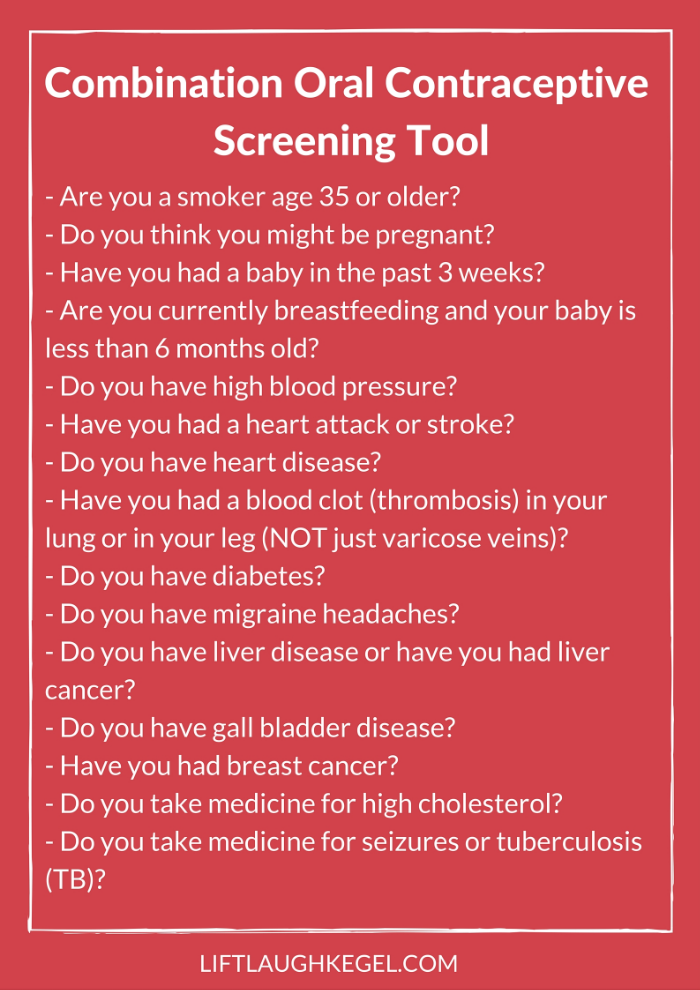This tiny little compact shaped container rocked the socks off of women in the 1960's. Finally there was a way to plan and decide when you wanted to have a baby. Now it seems to be regularly prescribed to every girl who gets her period. The pill, more formally known as oral contraception (OC), has come a long way since it was first developed. Here's the latest scoop.
1. There are different types of OC
There are 2 main kinds: progestin only and combined. Progestin is the hormone which prevents ovulation and thus pregnancy. Combined OC is a mix of progestin and estrogen. Estrogen was added to birth control pills because it helps to make periods predictable and stable.
Did you know... that the pill was originally produced on a 21 on/7 day off cycle so that women would be more likely to accept it? The thinking was that women wouldn't want something "unnatural" and that they wouldn't know it's working without getting a period. Progrestin blocks ovulation which blocks periods, and it takes about 4-5 days on average for progestin to clear out of your system. Pharmacologists selected 7 days so that most women would have at least a couple days of their period.
Newer versions of the pill have longer lasting "on" days which give you fewer periods per year. While this may seem abnormal, research shows it's safe although you may be more likely to experience spotting.
2. It's changed quite a bit in 50 years
And thank goodness! New versions of the combo OC contain lower doses of estrogen, which is responsible for some of those irritating side effects such as nausea, breast tenderness, breakthrough bleeding, missing "periods", and bloating. More natural forms of estrogen are also being developed and tested to further decrease the negative side effects while still being just as effective.
You may have heard about the risks associated with using OC. That's also due to estrogen. The OC of 5 decades ago contained between 4-6x higher doses of estrogen which was linked to increased risks of blood clots back in the 70s. Since then, the dosage has been lowered and research has helped to identify women who should not be taking this specific form of OC. You can use the quick guide below to determine if you are one of those women.
This screening tool is based on the World Health Organization's grade 3 and 4 contraindications to starting combo type birth control pills.
Progestin is a great option for women who have any of the above risk factors. Always talk to your doctor about the risks/benefits of any medication you take, as well as alternative options.
Note: Quitting smoking is much more effective in reducing your risk of heart disease, cancer, and blood clots than just taking a different OC.
3. It's got a whole heck of a lot of benefits!
Ok so maybe I just freaked you out there for a second. If you are on COC (and answered no to all of those questions) then there are many great benefits too! The common ones we hear about include lighter and more regular periods, less acne, and less cramping.
But OC has also been shown to: increase bone density (you'll appreciate that in 40 years), decrease anemia, decrease pain due to endometriosis, and treat pelvic inflammatory disease. It's also a safe way to control your period (i.e. timing it so you don't have one on that beach getaway). COC may also reduce your risk of developing ovarian cysts and having ectopic pregnancy (when the fertilized egg attaches somewhere other than the utuerus).
COCs also pack a big anti-cancer punch. Studies have found that they reduce the risk of ovarian cancer by 40% and that this effect can last 15-20 years after you've stopped taking the pill! Combo OCs may also reduce your risk of getting endometrial (lining of uterus) cancer by up to 50%. Women who take OC are also less likely to die from cancer and heart disease. The jury is still out on whether OC increases your risk of breast cancer. If you have a strong family history of breast cancer, speak with your healthcare professional about this.
Did any of this surprise you? Do you have any other questions about the pill?
Resources:
Contraindications to Combined Oral Contraceptives Among Over-the-Counter Compared With Prescription Users from the journal of Obstetric Gynecology 2013, available at http://www.ncbi.nlm.nih.gov/pmc/articles/PMC3619033/
Accuracy of Self-Screening for Contraindications to Combined Oral Contraceptive Use from the journal of Obstetric Gynecology 2009, available at http://www.ncbi.nlm.nih.gov/pmc/articles/PMC2615461/
50 Years of the Pill: Celebrating a Golden Anniversay from the British Medical Journal 2011, available at http://jfprhc.bmj.com/content/36/4/231.long











